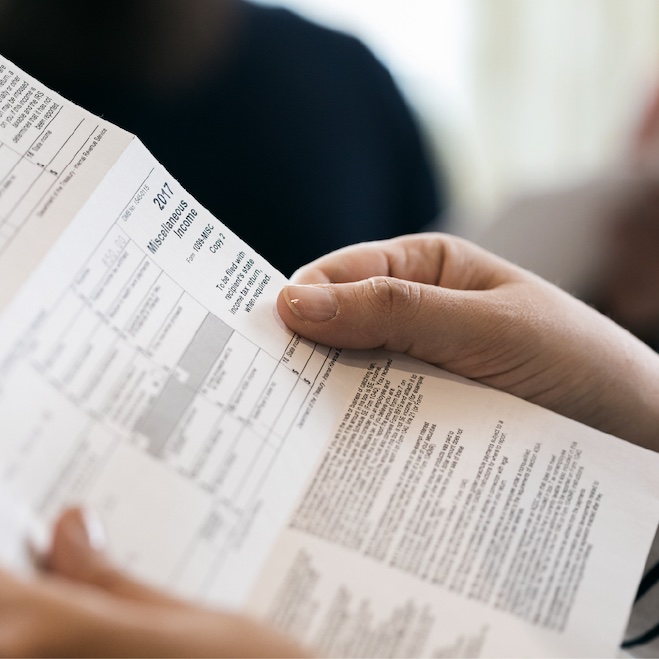Minnesota’s marketplace facilitator sales tax law, explained
by December 19, 2024
The state of Minnesota requires marketplaces to collect sales tax on behalf of sellers on online marketplaces like Amazon, and eBay.
This means that if you sell on a platform like Amazon, then Amazon will collect sales tax from your Minnesota buyers on your behalf, and remit it to the state.
But as usual, there are always a few wrinkles here when it comes to e-commerce sales tax.
This post will explain what online sellers need to know about the Minnesota marketplace facilitator law, and answer your frequently asked questions.
Overview of the Minnesota marketplace facilitator law
Minnesota’s marketplace facilitator law states that marketplace facilitators in Minnesota collect Minnesota sales tax on behalf of third-party sellers.
Quick facts about the Minnesota marketplace facilitator law
- Effective date: October 1, 2018
- Threshold: This law requires that marketplace facilitators in Minnesota collect Minnesota sales tax on behalf of third-party sellers. Keep in mind that third-party sellers who have other forms of sales tax nexus in Minnesota (a home office/business, physical location, employee, salesperson, etc.) would still be required to register for a Minnesota sales tax permit and collect sales tax.
- State law information: Read the full text of the Minnesota Marketplace Facilitator Law
- Marketplaces that have adopted this law:
- Amazon (effective October 1, 2018)
- eBay (effective January 1, 2019)
- Etsy (effective October 1, 2018)
- Walmart (effective October 1, 2018
What exactly is a marketplace facilitator in Minnesota?
Minnesota law defines marketplace facilitators as any person, other than the seller, who facilitates a retail sale by:
- Listing or advertising the seller’s products
- Processing the payments from the customer, either directly or indirectly through a third party, regardless of whether the marketplace provider receives compensation or other consideration in exchange for its services
Online sales platforms like Amazon and eBay are considered marketplace facilitators under Minnesota law.
Does this mean I can stop collecting Minnesota sales tax?
It depends.
Marketplace providers and remote sellers that solicit sales in Minnesota, but do not maintain a physical place of business in Minnesota, must register, collect, and remit Minnesota sales tax no later than 60 days after they either make or facilitate:
- 200 or more retail sales into Minnesota during the last 12-month period
- Retail sales totaling more than $100,000 into Minnesota during the last 12-month period
Marketplace facilitator laws only cover marketplaces. The state still requires that merchants collect sales tax from buyers via sales channels where the marketplace facilitator laws do not apply.
Does this mean I can cancel my Minnesota sales tax permit?
It depends.
The marketplace provider must collect sales tax on sales they facilitate unless the marketplace provider and seller agree that the seller will collect the sales tax. The seller is required to give the marketplace provider a copy of its registration to collect sales tax in Minnesota.
But first, a word of caution. We recommend checking directly with the state or a sales tax expert before cancelling your sales tax registration. This is because your business is now on the state of Minnesota’s books and potentially on their radar should they decide that you still have sales tax obligations in the state of Minnesota.
Final note: It’s important to assess your business before making a decision about cancelling sales tax permits. Are you in a growth stage? Do you plan to expand and think you may have Minnesota sales tax collection requirements in the future? Then you may want to hang on to your Minnesota sales tax permit rather than cancelling it and going through the administrative hassle of registering again in the future. This business decision is up to you.
Do I still need to file a Minnesota sales tax return?
According to the state, if you have nexus in Minnesota (due to an actual physical presence in this state or you’ve crossed an economic nexus threshold etc.) you would still be expected to have a license in this state and file returns as sellers with nexus are expected to do.
You will need to register to collect and remit sales tax on your non-Marketplace sales made through your website and other sources that are not collecting and remitting Minnesota taxes for you. When you file, you’ll include the marketplace sales totals in your Gross Sales Total, but you’ll exclude the Marketplace sales total from the Taxable Sales total that you report to the state.
What do I do with any Minnesota sales tax I have already collected?
If you have already collected Minnesota sales tax from buyers, it is vital that you remit that amount to the state. The only way to get in serious criminal trouble in sales tax is to collect sales tax from buyers on the state’s behalf but keep it in your own pocket.
Does TaxJar handle this for me?
Yes.
TaxJar AutoFile handles Minnesota sales tax automatically
TaxJar AutoFile automatically compiles your sales tax data the way the state of Minnesota wants it filed. For example, many states, Minnesota included, want sellers to break down their sales tax collected interstate (sales originating in Minnesota sent to another state) and intrastate (sales made from Minnesota to Minnesota).
If a marketplace has collected sales tax on your behalf, TaxJar reports that directly to the state so that the state is aware you have met your sales tax obligations.
If you currently AutoFile your Minnesota sales tax returns, you don’t need to do a thing. It’s handled!
TaxJar reports give you all the info you need to file manually
If you prefer to file manually, your TaxJar Reports also reflect what the Minnesota’s Department of Revenue wants to see on your tax return.
Also don’t worry that you will double pay. TaxJar accounts for sales tax collected on your behalf, and only shows you the amount you owe to the state out of your pocket.
Further reading on Minnesota sales tax and marketplace facilitator laws:
- TaxJar’s Marketplace Facilitator FAQ
- State by State: Marketplace Facilitator Laws Explained
- Minnesota Sales Tax Guide for Businesses








